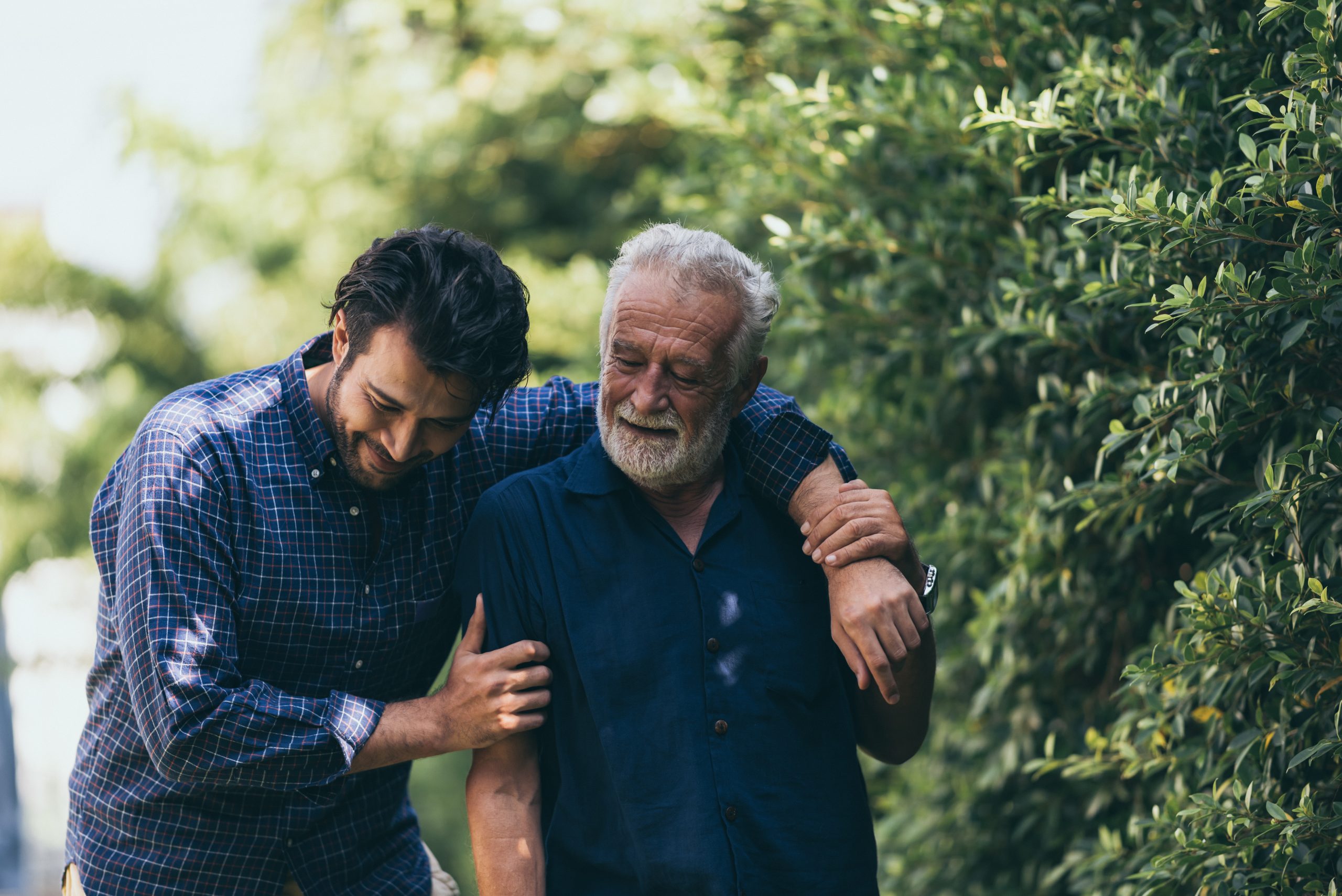Long COVID or Post-COVID Conditions
Updated 8-5-24
Long COVID or Post-COVID Conditions
(Also known as Long-haul COVID, post-acute COVID-19, post-acute sequelae of SARS-CoV-2 infection (PASC), long-term effects of COVID, and chronic COVID)
Some people who have been infected with COVID-19 can experience long-term effects known as Post-COVID Conditions or Long COVID. Post-COVID Condition is defined by the World Health Organization as occurring in a person with a probable or confirmed SARS-CoV-2 infection, usually 3 months from the onset of COVID-19 with symptoms that last for at least 2 months and that can’t be explained by an alternative diagnosis.
Most patients’ symptoms improve slowly over time
Common symptoms include fatigue (feeling tired all the time) shortness of breath, cognitive dysfunction (problems with attention and memory) but also others. These symptoms generally make everyday activities harder. Symptoms of Long COVID can be from when a person was sick with COVID, or they can develop later after a person has recovered. Symptoms may also come and go over time.


What You Need to Know about Long COVID
- Long COVID can include a broad range of ongoing health problems. These conditions can last weeks, months, or years.
- Long COVID is found more often in people who had severe COVID-19 illness. However, anyone who has been infected with COVID-19 can have Long COVID, even people who were not very sick or had no symptoms from COVID-19.
- People who are not vaccinated against COVID-19 and become infected may also be more likely to develop Long COVID than people who were vaccinated and had breakthrough infections.
- There is no single test for Long COVID. While most people with Long COVID have evidence of infection or COVID-19 illness, in some cases, a person with Long COVID may not have tested positive for the virus or known they were infected.
What You Need to Know about Long COVID
- Long COVID can include a broad range of ongoing health problems. These conditions can last weeks, months, or years.
- Long COVID is found more often in people who had severe COVID-19 illness. However, anyone who has been infected with COVID-19 can have Long COVID, even people who were not very sick or had no symptoms from COVID-19.
- People who are not vaccinated against COVID-19 and become infected may also be more likely to develop Long COVID than people who were vaccinated and had breakthrough infections.
- There is no single test for Long COVID. While most people with Long COVID have evidence of infection or COVID-19 illness, in some cases, a person with Long COVID may not have tested positive for the virus or known they were infected.

Symptoms
People with Long COVID can have a wide range of symptoms that can last more than four weeks or even months after infection. Sometimes the symptoms can even go away or come back again.
Long COVID may not affect everyone the same way. Most patients’ symptoms improve slowly over time. However, for some people, Long COVID may last months, and potentially years after COVID-19 illness and may sometimes result in disability.
Some common symptoms of Long COVID:
General symptoms
- Tiredness or fatigue that interferes with daily life
- Symptoms that get worse after physical or mental effort
- Fever
Respiratory and Heart Symptoms
- Difficulty breathing or shortness of breath
- Cough
- Chest pain
- Fast-beating or pounding heart (heart palpitations)
Digestive symptoms
- Diarrhea
- Stomach pain
Neurological symptoms
- Difficulty thinking or concentrating (sometimes referred to as “brain fog”)
- Headache
- Sleep problems
- Dizziness when you stand up (lightheadedness)
- Pins-and-needles feelings
- Change in smell or taste
- Depression or anxiety
Other symptoms
- Joint or muscle pain
- Rash
- Changes in menstrual cycles
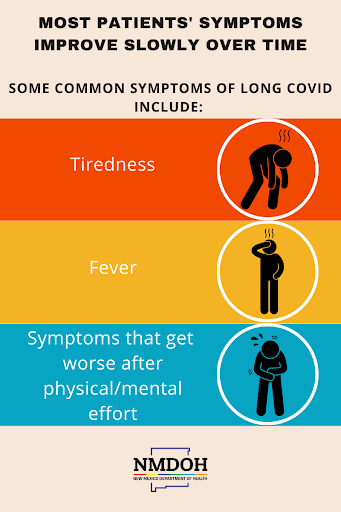
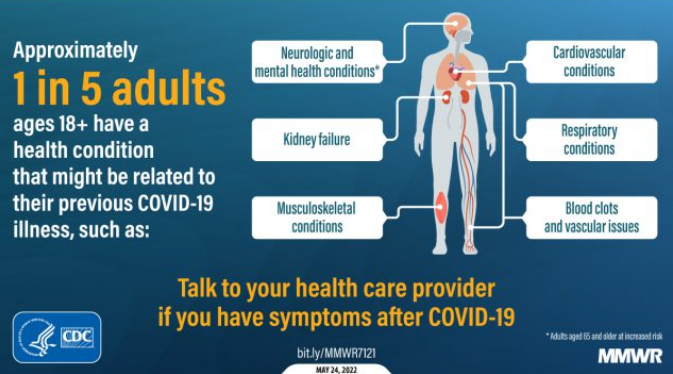
Risk Factors and Long COVID
While it’s clear that people with certain risk factors (including high blood pressure, smoking, diabetes, obesity, and other conditions) are more likely to get very sick from COVID-19, there isn’t a clear link between these risk factors and long-term problems. In fact, long COVID can happen in people who have mild symptoms.
How Common is Long COVID?
Estimates of the percentage of people who had COVID-19 that go on to experience Long COVID can vary:
- 13.3% at one month or longer after infection
- 2.5% at three months or longer, based on self-reporting
- More than 30% at 6 months among patients who were hospitalized
Risk Factors and Long COVID
While it’s clear that people with certain risk factors (including high blood pressure, smoking, diabetes, obesity, and other conditions) are more likely to get very sick from COVID-19, there isn’t a clear link between these risk factors and long-term problems. In fact, long COVID can happen in people who have mild symptoms.
How Common is Long COVID?
Estimates of the percentage of people who had COVID-19 that go on to experience Long COVID can vary:
- 13.3% at one month or longer after infection
- 2.5% at three months or longer, based on self-reporting
- More than 30% at 6 months among patients who were hospitalized

Diagnosing Long COVID
- There is no test to diagnose Long COVID
- Healthcare providers will want to be sure that symptoms aren’t due to other health conditions
People More Likely to Develop Long COVID
Studies have shown that some groups of people may be affected more by Long COVID. While this is not a complete list, the CDC provides examples of people or groups who might be more at risk than others for developing Long COVID:
- People who have experienced more severe COVID-19 illness, especially those who were hospitalized or needed intensive care.
- People who had underlying health conditions prior to COVID-19.
- People who did not get a COVID-19 vaccine.
- People who experience multisystem inflammatory syndrome (MIS) during or after COVID-19 illness.
Preventing Long COVID
Getting vaccinated, and staying up-to-date with vaccines against COVID-19 can help prevent COVID-19 infection and protect against severe illness. Research suggests that people who are vaccinated but experience a breakthrough infection are less likely to report Long COVID conditions compared to people who are unvaccinated.
The best way to prevent Long COVID conditions is to protect yourself from infection.
- Stay up-to-date with vaccines
- Masking
- Social distancing

Living with Long COVID
Living with Long COVID can be hard especially when there are no immediate answers or solutions. However, people experiencing Long COVID can work with a healthcare provider to come up with a medical management plan specifically for them and may also consider reaching out for professional mental and emotional support. Taking these steps may improve symptoms and quality of life.
While Long COVID appears to be less common in children and adolescents than in adults, long-term effects after COVID-19 do occur in children and adolescents.
What rights do people whose Long COVID qualifies as a disability have under the ADA? People whose Long COVID qualifies as a disability are entitled to the same protections from discrimination as any other person with a disability under the ADA, Section 504, and Section 1557. For more information, visit Guidance on “Long COVID” as a Disability Under the ADA, Section.
Experiences vary among those impacted by Long COVID or who experience post-COVID conditions. The medical and scientific community continue to study and learn more about those living with the disease and its effects. Learn more about participating in a study. In general, symptoms diminish over time and most people regain their quality of life. Access the resources below for a wealth of information, guidance, and help.

Resources:
The COVID-19 pandemic has had a major effect on our lives with many of us facing challenges that can be stressful and overwhelming.
If you are in need of immediate, confidential, and free support:
- For more information about Long COVID: Long COVID Basics | COVID-19 | CDC
- Coping with Stress (cdc.gov)
- Call 988 for the 24/7 lifeline for emotional, mental or substance misuse support.

Finding What Helps
How Are You Feeling These Days? We have made it through so much. Sometimes we still feel stressed or anxious. Remind yourself that tomorrow is a new day that could bring new celebrations and challenges. Click below to find trusted resources that can help us through the range of emotions we all face.

RECOVER: Researching COVID to Enhance Recovery
RECOVER research aims to understand how people recover from a COVID infection, and why some people do not fully recover and develop Long COVID or PASC (post-acute sequelae of SARS-CoV-2).
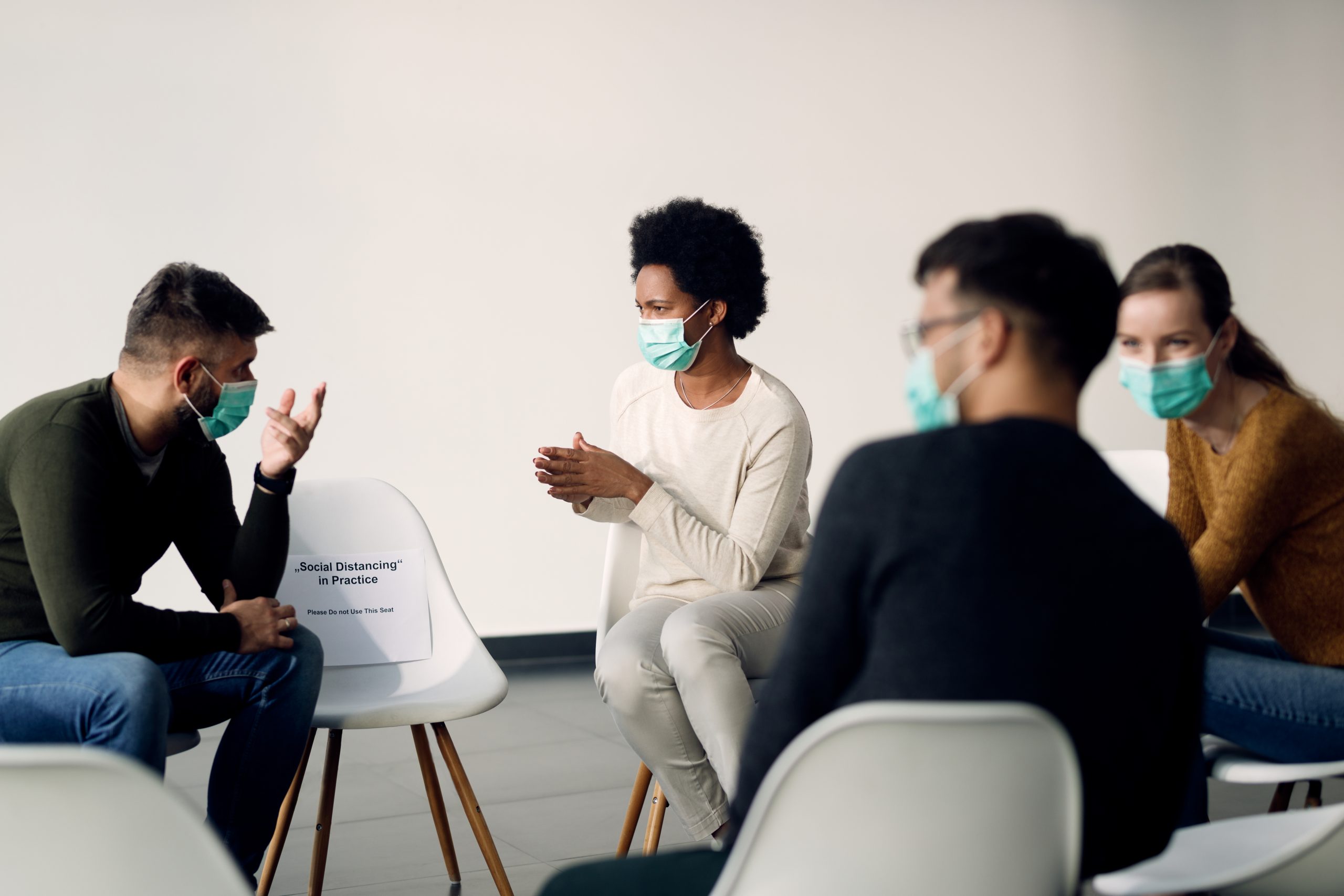
Body Politic: COVID-19 Support Group
Body Politic breaks down barriers to patient-driven whole-person care and well-being, particularly for historically marginalized communities by facilitating peer-support, cultivating patient-led research and public education, and leading community-based advocacy.

Other Resources
CDC lists many resources for those living with Long COVID

Long COVID Alliance
The Long COVID Alliance is a network of patient-advocates, scientists, disease experts, and drug developers who have joined together to leverage their collective knowledge and resources to educate policy makers and accelerate research to transform our understanding of post-viral illness.
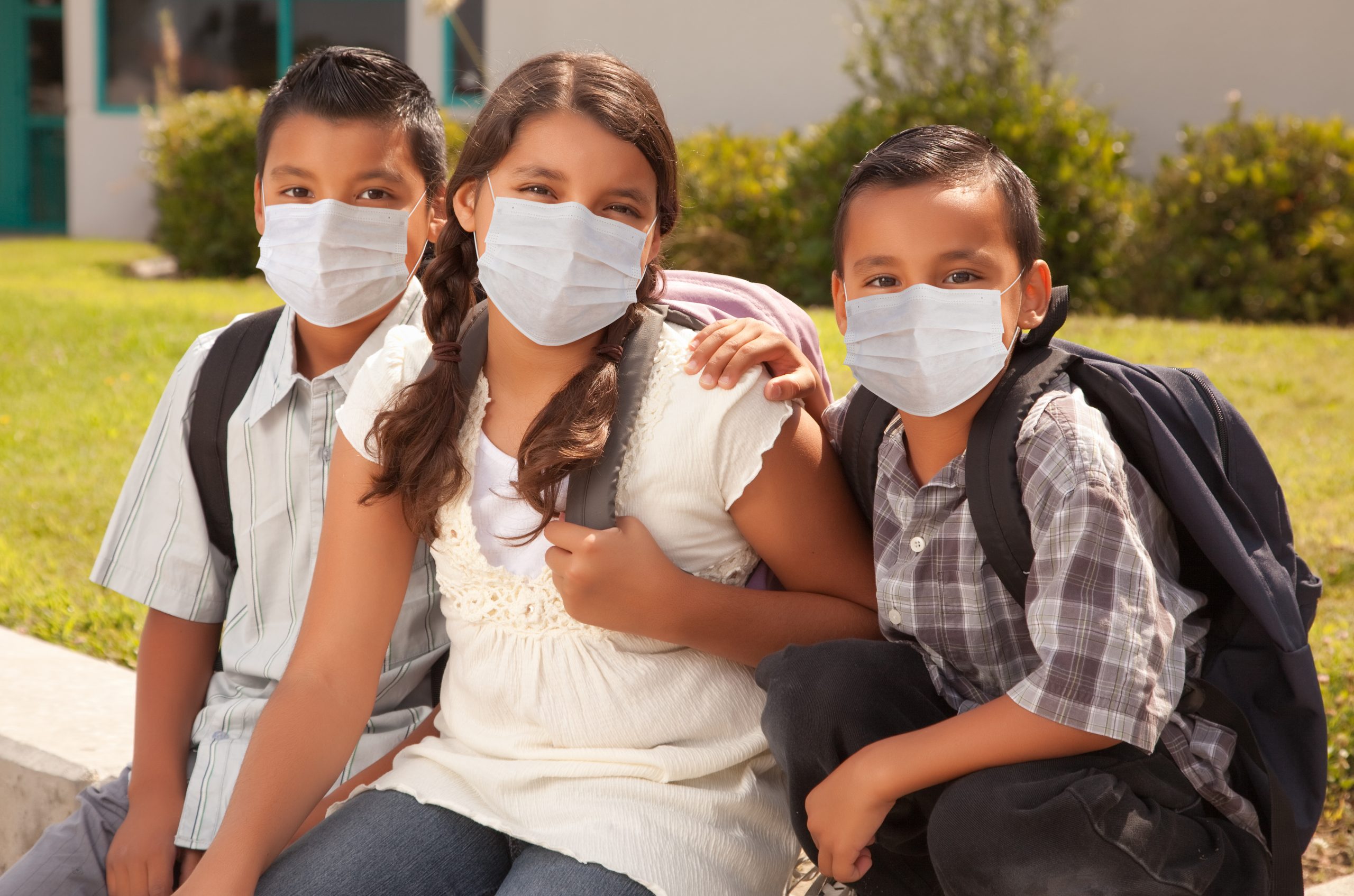
Long COVID Kids
We believe all children should be able to thrive and look forward to a positive future. That is why we represent and support children and young people living with Long COVID and related illnesses and the parents and caregivers that look after them.
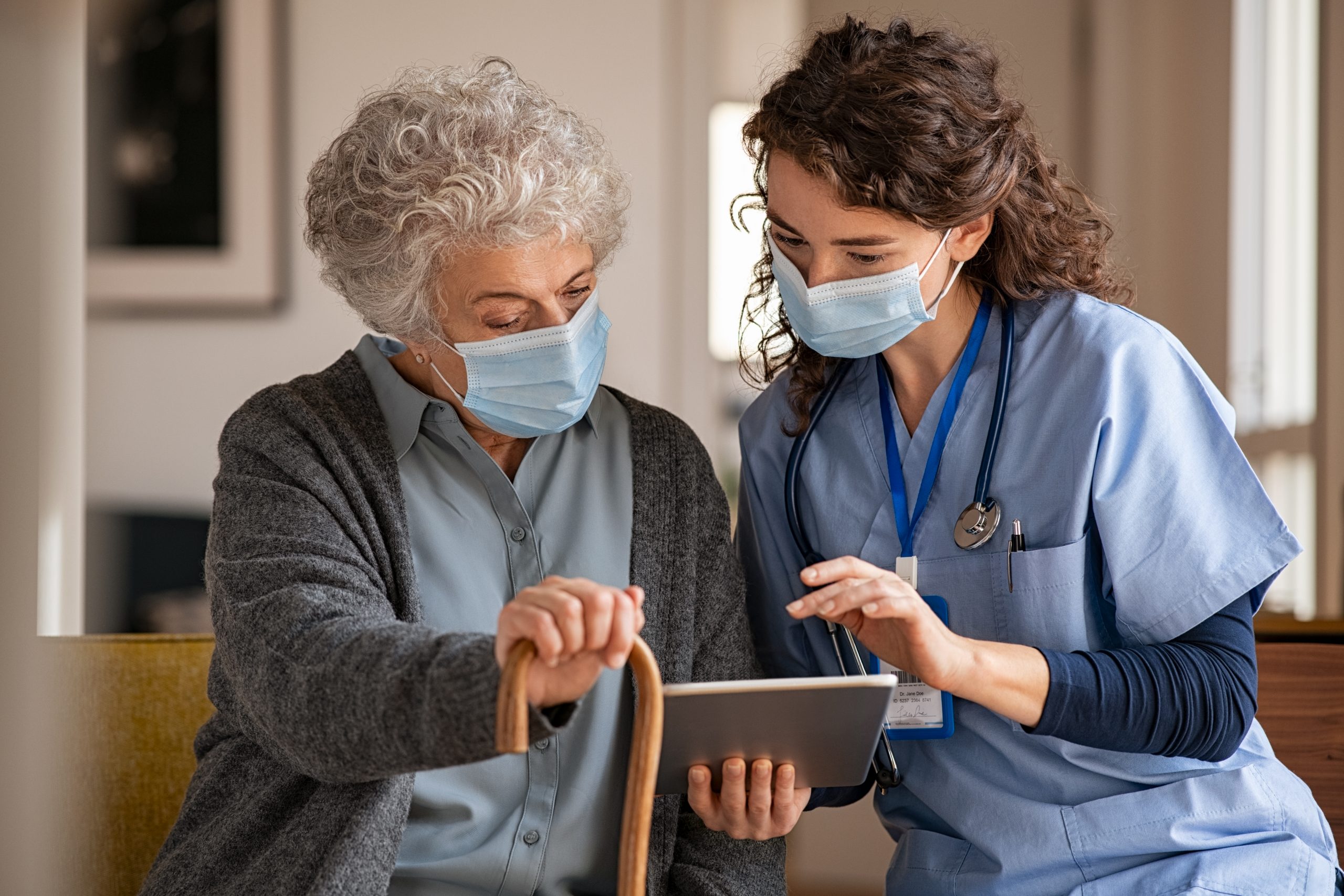
Coronavirus Resources and Articles for Family Caregivers
Family Caregiver Alliance is committed to continuing to support caregivers through the evolving situation associated with the coronavirus.
Copyright New Mexico Department of Health

